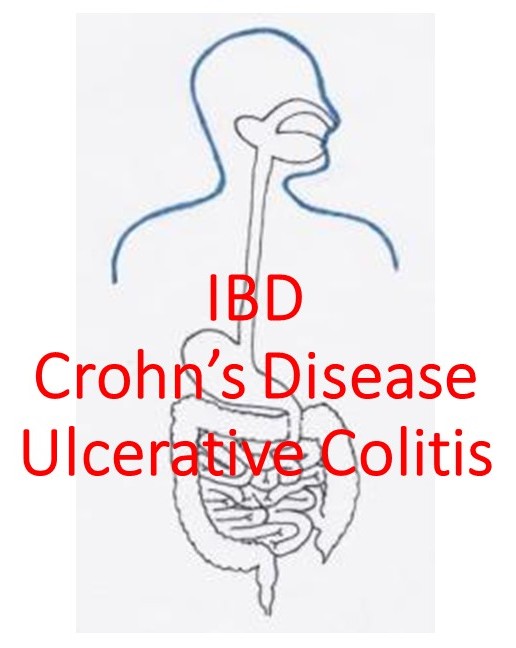Probiotics for IBD
 |
Probiotics for IBD are a promising way to manage the worldwide increasing incidence of inflammatory bowel disease, especially in addition to standard dexamethasone therapy. IBD is the acronym for inflammatory bowel disease, which mainly refers to ulcerative colitis (UC) and Crohn’s disease (CD). Although the main effects of UC and CD occur in different parts of the intestinal tract, with UC in the colon and rectum, and CD primarily in the small intestine but anywhere along the gastrointestinal tract, both conditions share the common factor of severe inflammation. Patients with IBD are at increased risk for developing colorectal cancer. |
The Causes of IBD
The causes leading to the development of IBD are still uncertain, but appear to be multifactorial, involving genetic predisposition, nutrition and eating habits, lifestyle and environmental factors, balance of intestinal microbiota integrity, and intestinal barrier function. Standard treatment of IBD with dexamethasone, a corticosteroid drug (cortisone-like medicine or steroid), is thought to act on the endocrine and immune systems to suppress inflammation, but it has many side effects. As a result, other interventions are desperately needed.
Ho Do Probiotics for IBD Help?
With probiotics for IBD, sometimes the microbes themselves are most helpful, and sometimes the products they produce can be helpful, separately or additionally. The products they produce, called metabolites, are captured in the laboratory in a growth medium called the supernatant. The actual cells of the probiotics are filtered out of the growth medium, leaving the cell-free supernatant.
Since the supernatant is an important part of probiotic action, studying it by itself is another way to know how probiotics for IBD are helpful. Additionally, since there is a layer of mucus that normally separates bacteria from the intestinal wall, and since the supernatant can filter through the mucous, studying the effects of the supernatant, and not the bacteria, provides important insights.
When you take probiotics, you may benefit from the activities and cell characteristics of the microbes themselves. Some of these benefits are:
- Production of short-chain fatty acids
- Nutrient metabolism and absorption
- Intestinal integrity
- Immune signaling and tolerance
- Nervous-system signaling
- Endocrine-system signaling
- Blockage, inhibition, displacement or killing of pathogens
You may also benefit from the substances the probiotics produce when the supernatant is produced within you .
Probiotics for IBD - The Supernatant
The supernatant itself has benefits, and although there have been other studies, this was most recently confirmed in a 2018 in vitro study on the effects of a certain supernatants. Lactobacillus acidophilus ATCC 4356, Lactobacillus casei ATCC 334, Lactococcus lactis ATCC 11454, Lactobacillus reuteri ATCC 55148, and Saccharomyces boulardii ATCC MYA-796 cell-free supernatants were investigated for their effects on human colon epithelial HT-29 cells and human macrophages, a type of immune cell.
I am not a biologist, but here are the basics of these cells so that the experiments in the study can be viewed in context. HT-29 cells are human mucus-secreting colon adenocarcinoma cell line HT29. These cells are used in laboratory in vitro tests to study the biology of human colon cancers, but they also can express characteristics of mature intestinal cells. HT-29 cells are able to form a layer with tight junctions between cells and brush border with activities that mimic the small intestine, albeit at a lower level. Although results from in vitro tests cannot exactly model what would happen in vivo (in a living being), the results are the first step in investigating effects on the cells.
Macrophages are involved basically in defense, resolution of inflammation, and tissue remodeling.
It is known that HT-29 cells and macrophages stimulated with lipopolysaccharide (LPS, a common toxin in Gram-negative bacteria, many of which are pathogens) produce pro-inflammatory chemicals and that probiotics, in general, can calm that action with anti-inflammatory effects. Researchers wanted to know 3 things from this study:
- If the metabolites, which can pass through the mucous in the intestine, from the 5 probiotics are able to cause anti-inflammatory effects with the HT-29 cells and macrophages used in the study. They particularly wanted to know what happens during that interaction when the cells are stimulated by LPS.
- What effect the metabolites from the 5 probiotics had on the section of pro-inflammatory chemicals from the two cell types.
- What kind of antioxidant effect, if any, the metabolites from the 5 probiotics had in neutrophils (another immune cell type), and what their potential health benefits might be
Results from The Study on Metabolites from Probiotics for IBD
The HT-29 cells were exposed to LPS alone, supernatants alone, or the combination of LPS and supernatants, and various inflammatory markers were analyzed. As expected, LPS caused increases in inflammatory markers, particularly interleukin-8 (IL-8), which plays an important role in the increase in disease activity in IBD. All of the supernatants except L. reuteri were able to downregulate IL-8 production with L. lactis showing the best anti-inflammatory action on HT-29 cells. From this experiment, L. lactis looks like the best candidate for probiotics for IBD.
Since IL-8 is not the only route for inflammation, however, other experiments with macrophages were performed. One of the chemicals involved in resolution of inflammation is interleukin-10 (IL-10). IL-10 is particularly important in IBD because studies show that mice without the capability to produce IL-10 spontaneously develop IBD-like symptoms. Very interestingly, all 5 probiotic supernatants were able to significantly stimulate the ANTI-inflammatory chemical, IL-10, from the macrophages with LPS stimulation. From this experiment, all 5 probiotics look like solid candidates as probiotics for IBD.
When intestinal inflammation leads to damage of the intestinal cell layer, free radicals are produced. Antioxidants are substances that quench free radicals, so they are very important in inflammation, such as that that occurs in IBD. This study showed that the supernatants of L. acidophilus, L. casei and L. lactis were able to significantly reduce free radical damage and increase free radical scavenging rate.
What Does This Mean for Probiotics for IBD?
All this information sounds fascinating (or not!!!), but what does it mean regarding probiotics for IBD? On one hand, all probiotics for IBD except L. reuteri seemed to be good at reducing the main marker of increased disease activity in HT-29 cells, with L. lactis seeming to be the best at it. When looking at the effects on immune cells, however, all 5 probiotics showed anti-inflammatory effects in macrophages, and L. acidophilus, L. casei and L. lactis showed significant antioxidant effects on neutrophils. The conclusion of this study was that “This study provides a further evidence to support the possible use of probiotic metabolites in preventing and downregulating intestinal inflammation as adjuvant in anti-inflammatory therapy.”
What this study shows, and what many other studies show, is that probiotics, in general, can have different effects on different cells depending on the particular circumstances. Although conclusions such as this can be very frustrating to people who want a definitive answer, the reality is that probiotics are not drugs with one specific action. Probiotics have many, many different effects and their actions depend on the environment in which they are living. How they act during a disease flare-up may be different than their actions during disease remission, also. IBD is a complex disease, with many factors playing a role.
As a 2018 meta-analysis of probiotics for IBD concluded, “Probiotics are beneficial in IBD, especially the combination ones in UC.” The best thing to do, in my opinion, for IBD and other inflammatory conditions, is to keep the consistently immune-provoking pathogens under control with a variety of probiotics and other beneficial microbes, abundantly eat nutritious food and drink filtered water, reduce toxin burden, and cultivate helpful lifestyle factors. For help with any of these aspects, consider nutrition consulations with me.
Return to Health Benefits page.
Return to Homepage.
I research studies and share my clinical experience to write this free site to help you find solutions to your problems. As part of that, I recommend products and services that I genuinely believe will be of help to you. If you click on a link to a product/service, I may receive a small commission to support my efforts if you buy something. The item does not cost you more.
Thanks for visiting this site! If you've enjoyed reading this page or have found the information to be useful to you, please "like", tweet about it, or share it so others can benefit, too. You can leave comments below via Facebook or Disqus.
Comment with Disqus (including as a guest), Twitter or Google accounts:
If you are one of my many readers without a Facebook account, you can still comment.
Disclaimer: Please note: By law, I cannot provide any personalized recommendations for your specific health concern on this site. The information contained in this site is educational in nature and is not intended as diagnosis, treatment, prescription or cure for any physical or mental disease, nor is it intended as a substitute for regular medical care. Consult with your doctor regarding any health or medical concerns you may have.
Subscribe to my monthly newsletter and receive a free copy of "How to Use Probiotics to Lose Weight and Be Healthier".

To comply with the EU's GDPR data privacy regulation, please subscribe here:
Looking for some quality professional supplements, including probiotics? Check out my online dispensary, as I will be doing reviews of some of these products in the future. Click on the Fullscript picture. (Note: If you were a former Wellevate customer, please switch to Fullscript for a better customer experience. Thanks!)
Some competitors of SBI (Solo Build It) are posting fake negative reviews of SBI. If you are considering creating your own website business, or if you have a brick-and-mortar business but want an online presence, I highly recommend SBI!





Comment with Facebook!
I'd love to hear your opinion about what you just read. Leave me a comment in the box below! Other commenting options follow the Facebook comments.